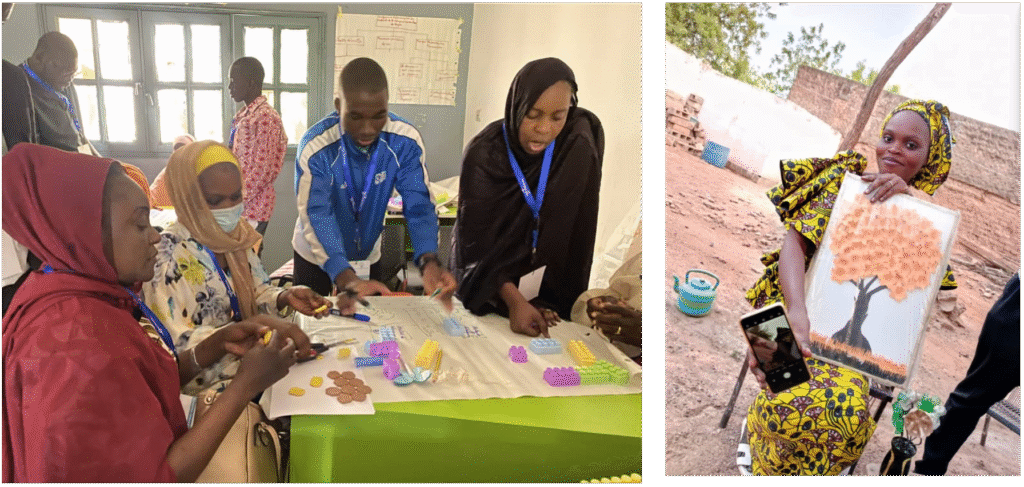
The Problem and Motivation Behind
“Plastic waste and pollution are serious problems here in Mali, with dire consequences on human health, animal health, and the environment. Waste is everywhere, and it’s especially caused by plastic and other products.” – Arouna.
Arouna Coulibaly (23-year-old) and his team witnessed firsthand how plastic waste accumulating during the rainy season, leading to blocked waterways and flooding. In Mali, plastic waste is an ever-growing problem with serious consequences for both human health and the environment. The lack of proper waste management, coupled with the health risks it poses, motivated Arouna and his team to find a sustainable solution.
The Innovative Solution
“We want to recycle plastic waste and turn them into decorative products. Our main goal is to participate in sustainable development and the preservation of the environment by recycling waste, especially plastic waste.” – Arouna.
When Arouna and his team joined the Youth Innovation Lab, they chose to address the problem of plastic waste. They found out that more than 1,470 kg of waste is produced every day in Mali. Through a Design Thinking process, they began by understanding the frustration caused by the growing amount of plastic waste. Then, they brainstormed how to convert plastic waste into useful products. They developed their solution, SIKIDA LAKANI, to promote sustainable development by transforming plastic waste into decorative and practical items. They developed prototypes of paving stones, decorative objects, plastic cups, bathroom tables, and flowerpots from recycled plastic waste. The final stage involved gathering feedback from the community, who expressed enthusiasm for the recycled products, appreciating both the environmental and economic potential of the products.
Lessons Learned and Addressing Challenges
“Design thinking was the most important tool for me. It taught me how to take an idea and turn it into a concrete project.” – Arouna
The Youth Innovation Lab enabled Arouna and his team to learn Design Thinking, that helped them to create useful products that are marketable and meet their customers’ needs. They also learned how to defend their ideas confidently thanks to the training on Design Thinking. They realised that presenting a well-prepared concept could persuade others to support the project. Additionally, Arouna was doubtful about the effectiveness of working in a group, especially with diverse perspectives. However, the lab experience taught him the value of teamwork and open-mindedness. “When we started, I didn’t really believe we would be able to work in these groups. I thought the ideas we shared wouldn’t be accepted. But once we started working together, I noticed that people were open-minded, and nobody wanted to criticise too harshly.” – Arouna explains.
Arouna and his team kept trying on recycling plastic waste and their solution was not fully taken in implementation due to lack of funding. Despite having prototypes, maintaining a consistent production process requires financial investment and better equipment. “Even though we have the ideas and the prototypes, without adequate funding, it’s difficult to scale up. We keep working with what we have, but we need more support to go further.” – Arouna explains.
Next Steps and Future Aspirations
“We want to do more than just recycle. We want to build a culture of sustainability in our community.” – Arouna.
Arouna and his team envisions expanding their solution to produce a wider range of products and involve more young people, particularly women, in the process. He aims to:
- Secure funding to increase production capacity.
- Raise awareness about the environmental benefits of recycling.
- Strengthen community partnerships to ensure sustainable waste collection.
- Develop training modules to teach other youth how to recycle plastic into useful items.